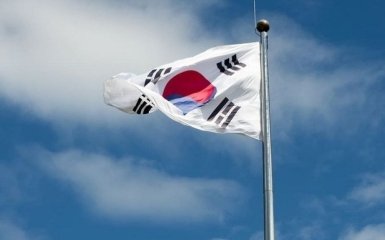South Korea imposed sanctions against North Korea's Missile Administration and four Russian ships for violating UN Security Council resolutions.
Points of attention
- The restrictions also apply to four Russian vessels and five organizations, including North Korea's Missile Administration.
- China demands that the EU lift sanctions against its companies, causing tension in international relations.
- The EU introduced tough restrictions and sanctions against the Russian defense and security sector, provoking a reaction from Beijing.
What is known about South Korea's sanctions against North Korea and Russia
The Ministry of Foreign Affairs (MFA) of South Korea clarified that these sanctions were imposed due to participation in the illegal trade in weapons, fuel, and other activities.
The restrictions will also affect five organisations, including North Korea's Missile Administration, which is responsible for the latest missile launch on June 26.
MFA added that this step is a response to the recently signed strategic partnership agreement between Russia and North Korea.
In general, the following were sanctioned:
four Russian vessels that were involved in the supply of refined oil to North Korea;
the Russian "M Leasing" LLC, which is responsible for arms trade between Moscow and Pyongyang;
the Euromarket company in Georgia sold Russian oil to North Korea.
Eight North Korean nationals were involved in developing and managing missiles at the North Korean Missile Administration.
China demands EU to lift sanctions against its own companies
China calls on the EU leadership to lift sanctions against Chinese companies.
The 14th package of EU anti-Russian sanctions included several companies located in Hong Kong, as well as two global satellite giants.
The EU introduced strict restrictions on the sale of "dual-use goods and technologies" that can be used to "strengthen the Russian defence and security sector."
On Tuesday, June 25, Beijing hit back — Chinese officials said they oppose "unilateral sanctions that have no basis in international law" and sent "stern notes" to the EU.
The development of normal exchanges and cooperation between Chinese and Russian businesses is not directed against any third party, said Chinese MFA spokeswoman Mao Ning.




